Be ambitious! Frontier spirit to tackle global challenges
University News | July 14, 2023
This article was published in the Spring 2023 issue of Litterae Populi. The full issue can be found here.
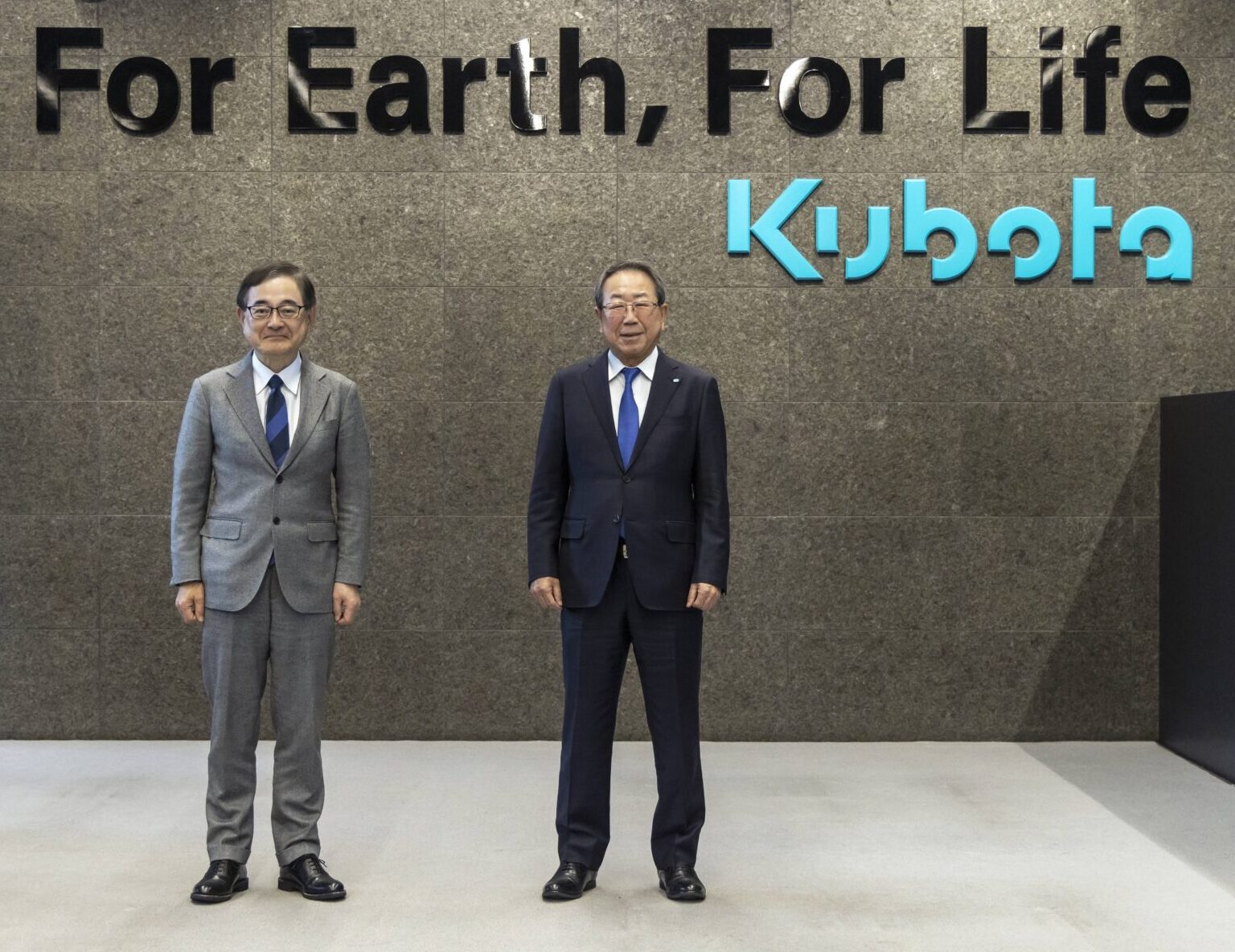
Kiyohiro Houkin and Masatoshi Kimata.
Since its founding in 1890, Kubota Corporation has been committed to solving various social problems in the areas of food, water, and the environment. Today, Kubota conducts business in more than 120 countries, with overseas sales accounting for more than 70% of its total sales. President Kiyohiro Houkin, who has been leading reforms to make the University an unparalleled institution, interviewed Masatoshi Kimata, an alumnus of the University and a driving force behind Kubota’s globalization, about his life and Kubota’s corporate philosophy, among other topics.
- Masatoshi Kimata (Guest)
-
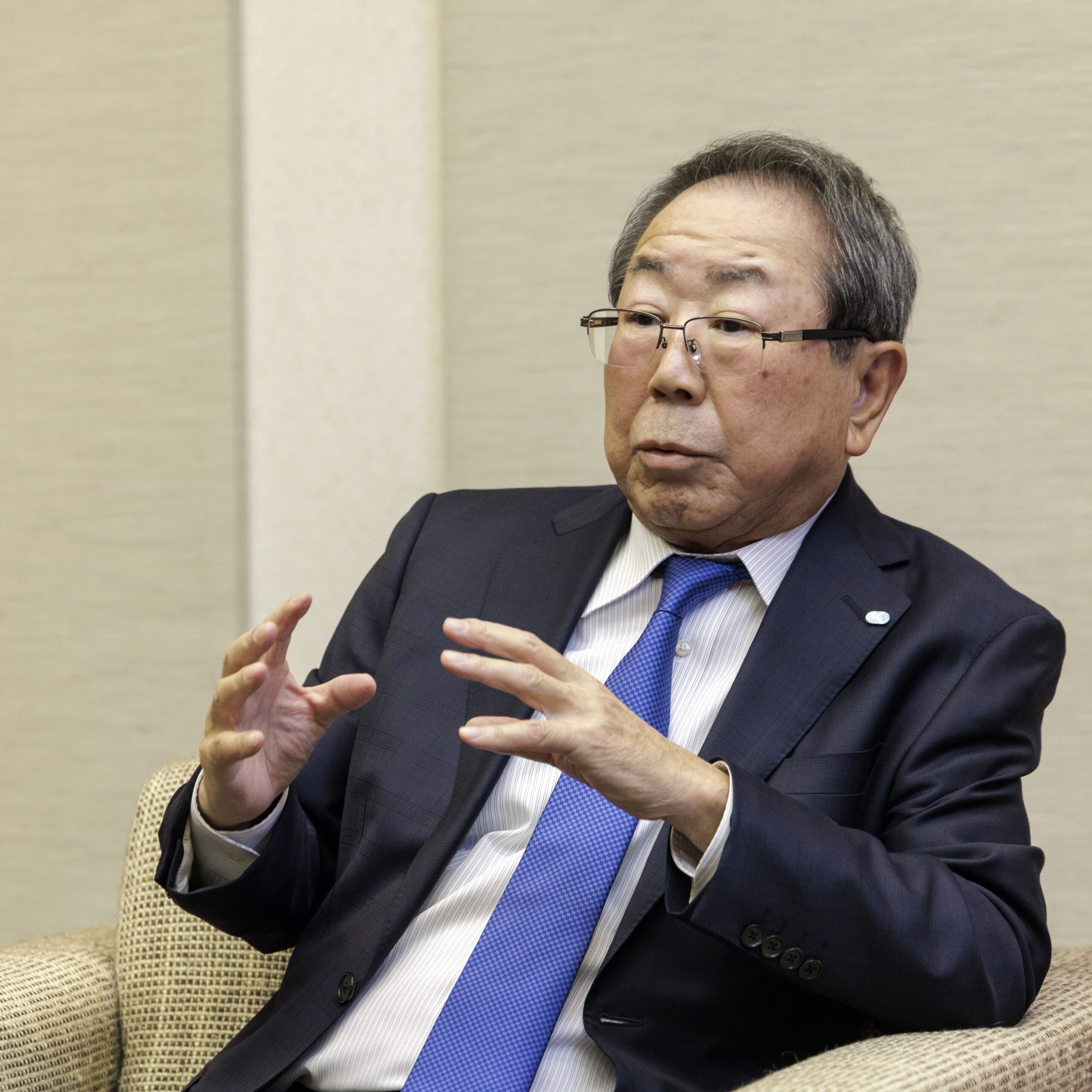
Chairman of the Board, Kubota Corporation
Born in Gifu Prefecture in 1951, Masatoshi Kimata graduated from Hokkaido University’s School of Engineering and joined Kubota Tekko K.K. (currently Kubota Corporation) in 1977. He was transferred to the U.S. in 1988. After returning to Japan in 2001, he served as the GM of the Tsukuba Plant. He then assumed the posts of Director and Managing Executive Officer in 2009 and President of Siam Kubota Corporation, Kubota’s subsidiary in Thailand, in 2010, among other positions. He was appointed as President and Representative Director in 2014, before taking up the post as Chairman of the Board and Representative Director in 2020. He assumed his position as the Chairman of the Board until March 2023 and is currently Special Corporate Advisor.
- Kiyohiro Houkin (Interviewer)
-
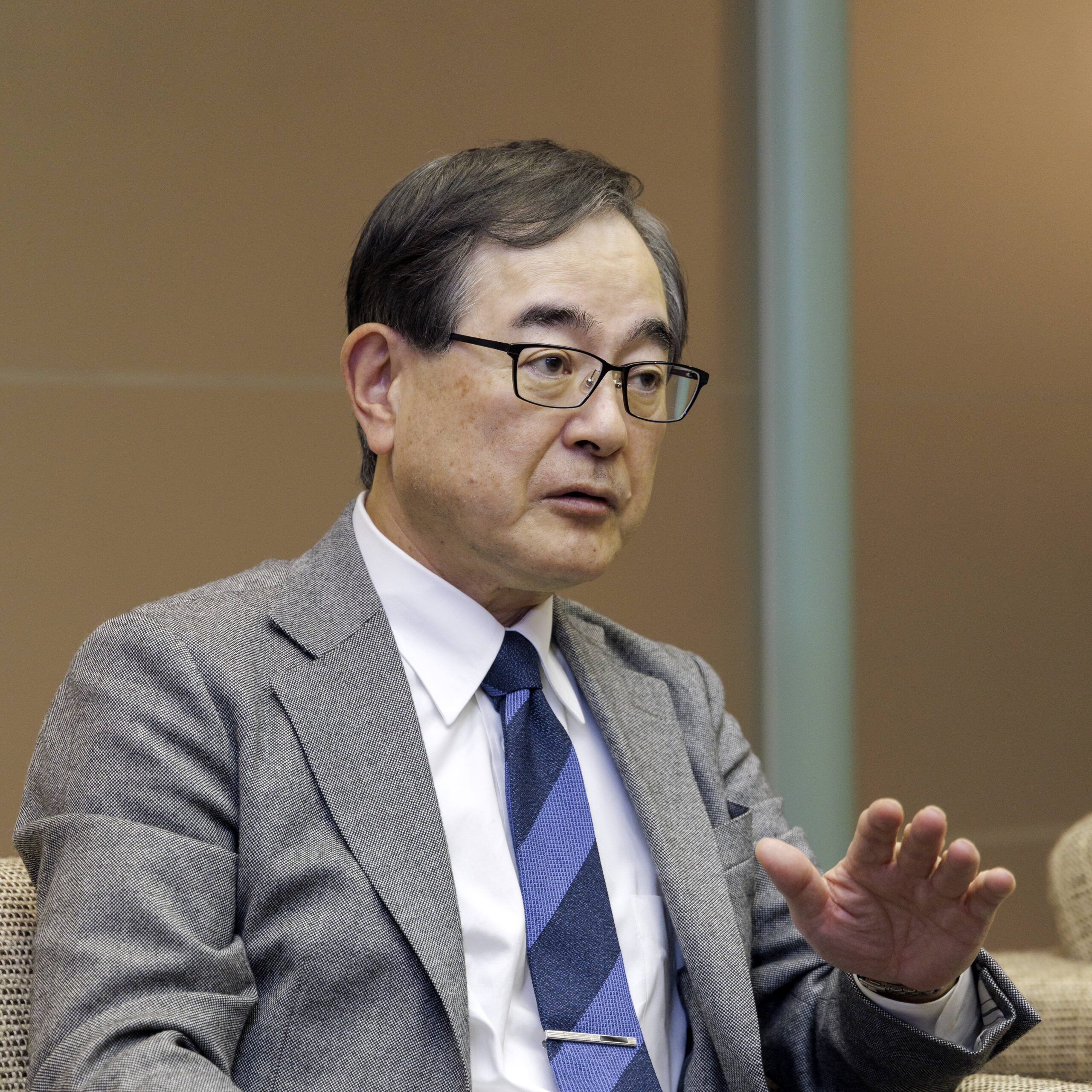
President, Hokkaido University
Born in Hokkaido in 1954. Graduated from Hokkaido University School of Medicine. Doctor (medicine) (Hokkaido University). Worked for Hokkaido University Hospital and other facilities since 1979. After working as a visiting researcher at the University of California, Davis, became an assistant professor at the Hokkaido University Graduate School of Medicine in 2000, professor of Sapporo Medical University School of Medicine in 2001 and professor of the Hokkaido University Graduate School of Medicine in 2010. After becoming the director of Hokkaido University Hospital/vice executive of Hokkaido University in 2013 and the director of Hokkaido University Hospital/vice president of Hokkaido University in 2017, assumed the present position in October 2020.
Student days spent doing nothing but experiments
Houkin: I was watching the World Cup soccer match on TV early this morning (Japan vs. Spain on December 2) and was impressed by the Kubota commercial. It communicates the image that Kubota is a forward-looking company doing business with a data-based understanding of Qatar, the host country of the World Cup.
Kimata: In Qatar and other Middle East countries, we have mainly contributed to water projects. Another commercial featuring actress Masami Nagasawa, with the message Because there is a wall, we go there, also attracted attention both inside and outside our company.
Houkin: I understand you are from Gifu Prefecture. Please tell us about your background and why you chose Hokkaido University.
Kimata: Partly because my father and uncle worked for the former Japanese National Railways, I always drew pictures of steam locomotives as a child. My love of steam locomotives sparked my interest in boilers. Later, with the shift from steam to diesel locomotives, I came to be fascinated by diesel engines.
When I was in high school, I liked traveling by train, which made me want to also visit Hokkaido someday. I then thought that if I attended a university in Hokkaido, I would be able to travel there. So, Hokkaido became a dream destination as an extension of my travels.
Houkin: What were your student days like?
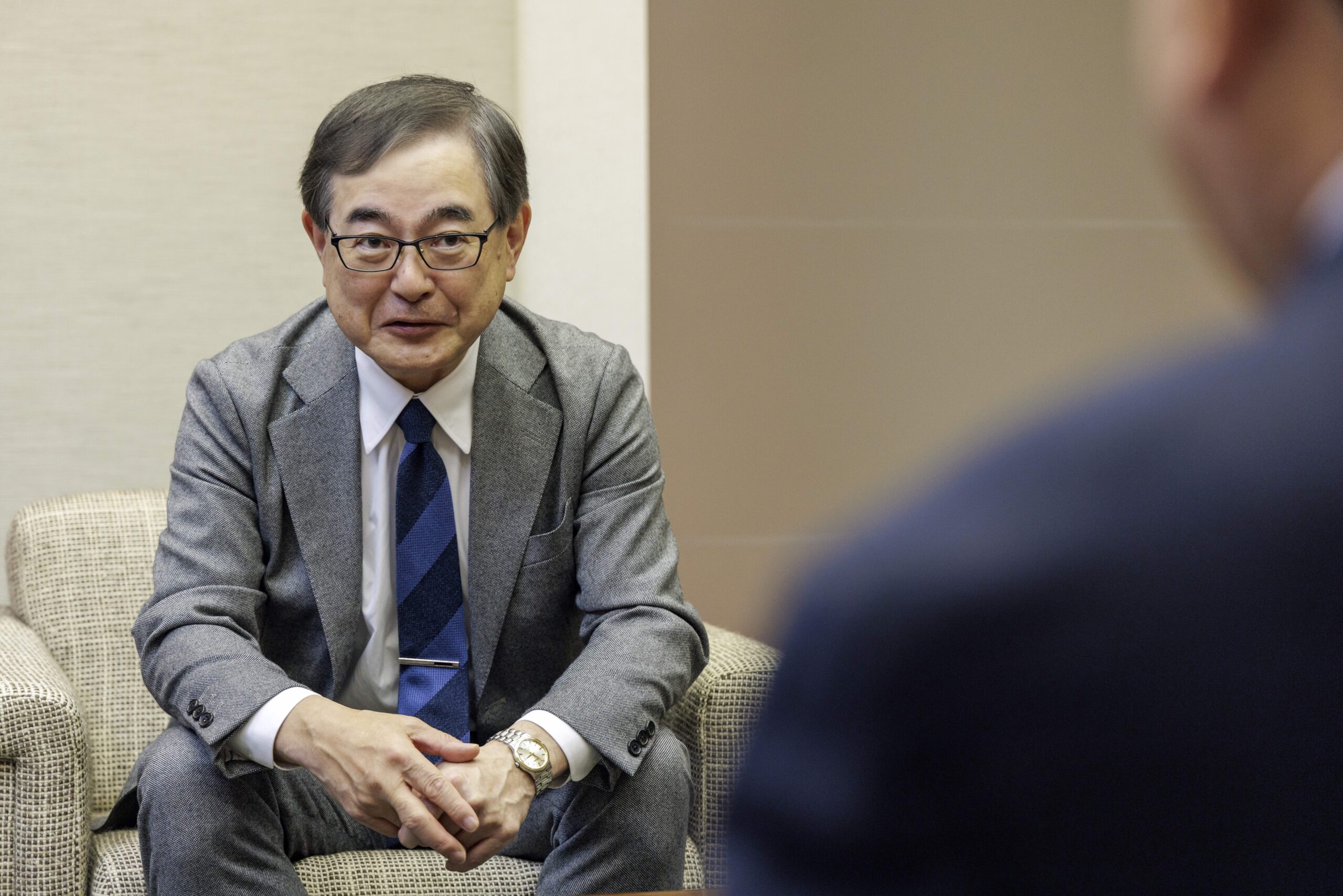
Kimata: I remember being cash-strapped and unable to travel very often. I spent the money I earned from my part-time job on tuition and alcohol. That said, I traveled around Hokkaido with a huge backpack like other cash-poor young travelers in Japan in those days. Just like those backpackers, who were called “crab tribe” because of their appearance from behind, I slept in train station buildings or on benches.
At the School of Engineering, I enrolled in Dr. Murayama’s Heat Engine Studies Course 2 to study diesel engines, my favorite subject. There, my supervisor, Dr. Murayama, and Takemi Chikahisa (professor emeritus at Hokkaido University, now president of Hokkaido Polytechnic College), with whom I worked as a lab team, would work me to the bone. This may be unthinkable today, but I often went without sleep for several days on end running engines.
My research was on how to reduce NOx and CO2 emissions from diesel engines. I spent hours collecting data while changing the injection method used for the engine. Through this experience, I developed a sense of perseverance.
I strived to develop environmentally friendly engines. I also considered electronic control of exhaust gas purification and transition from diesel oil to hydrogen fuel.
Putting “Boys, be ambitious” into practice
Houkin: I believe your research at the University has continued to this day. What made you decide to join Kubota?
Kimata: Kubota was an option because it was a machinery manufacturer that was also engaged in research and development of engines, working on large engines at the time. I chose the company based on a strong recommendation by a senior student.
Upon joining the company, I expressed my desire to engage in R&D of engines during my placement interview, but I was assigned to a tractor plant in Tsukuba. I felt a bit let down at first.
Houkin: You started working in Georgia in the U.S. in 1988. I studied in California for about two and a half years from 1986. At that time, the Japanese economy was booming based on the strength of the yen, and many Japanese people were working around the world.
Kimata: When I was assigned, the Tsukuba Plant was an international plant in the company, and half of its products were exported. In view of the rapid appreciation of the yen, I advised the GM of the plant to open a production base outside Japan. Before I gave that advice, I had an opportunity to go on a two-month business trip across the U.S. The trip totally convinced me that my mission was to have Kubota develop tractors and other agricultural machinery suitable to the U.S. market. I was young and cocky, but I volunteered to set up a production base in the U.S. and was told to do so without any objections.
Houkin: In those days, most of the Japanese companies doing business in the U.S. were either on the East or West Coast. You must have had a hard time establishing a plant in the southern state of Georgia?
Kimata: I was the only expatriate in charge of the Plant, so it was truly challenging to do everything on my own, including planning, construction, employee recruitment, sales promotion, and new product development. That being said, I had free rein. The rigorous training that I had endured during my school years was paying off (laughs).
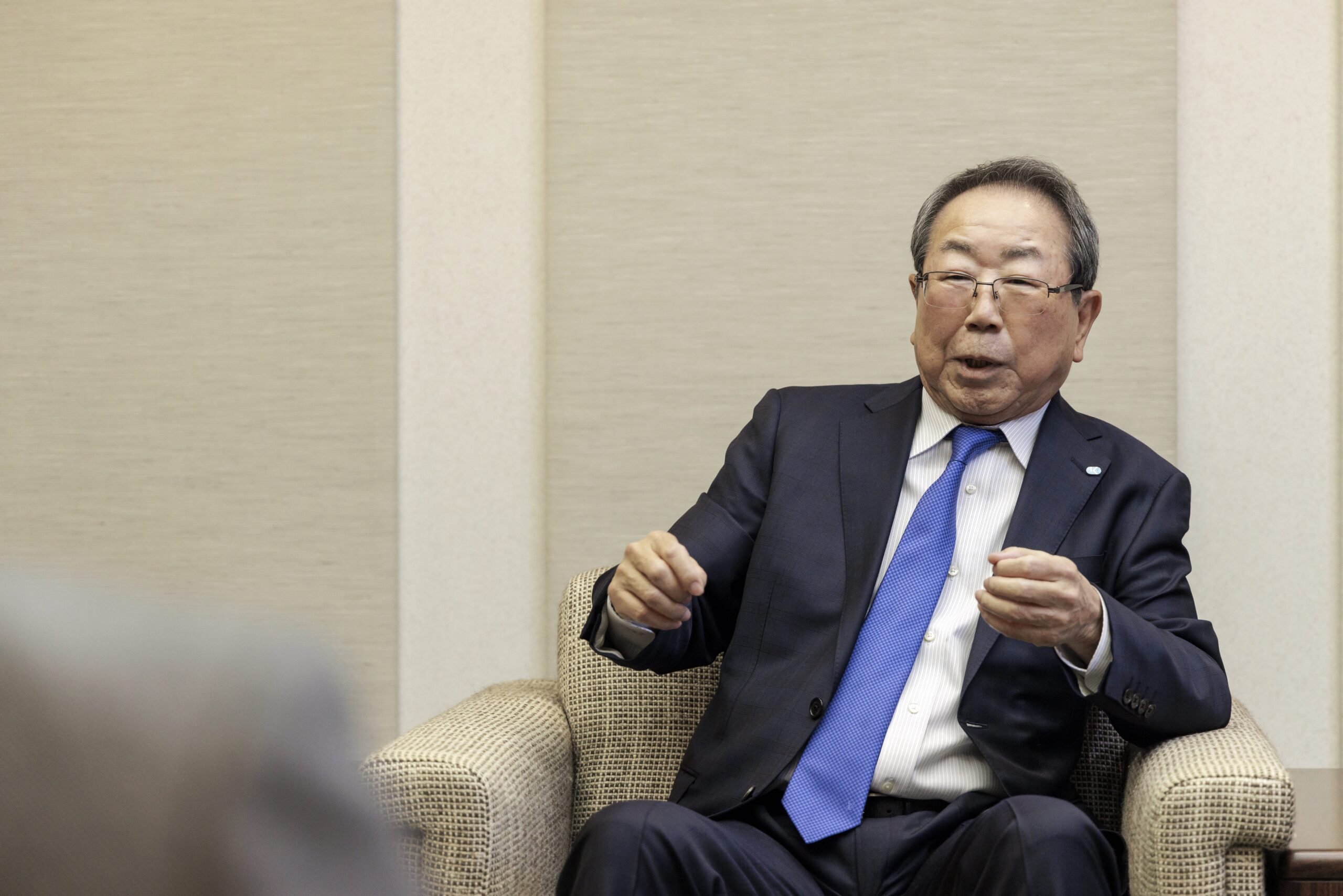
I chose Georgia mainly because it had the largest market for tractors and other agricultural machinery in the U.S. Other reasons include the proximity to customers and the beauty of the area, which has many forests, like Japan. Today, Kubota has eight plants in Georgia employing about 3,000 people.
Houkin: You returned to Japan seven years later. Was it challenging for you to adjust to the business culture in Japan?
Kimata: When I returned to Japan, I wanted to be involved in the globalization of the company but ended up returning to the Tsukuba Plant. There, I worked on the development of large tractors and their sales in the U.S. Kubota’s market share for large tractors had been a mere 3%, but I was able to boost it to 15%. When I started working in the U.S. in 1988, Kubota was an unknown company. Around 1995, however, it came to enjoy greater visibility. After 2000, I was moved by the fact that more and more people said they were using our tractors. I had put “Boys, be ambitious” into practice.
Today, Kubota has plants all over the world, with more than 70% of its total sales generated overseas. Since half of those overseas sales are exported from Japan, however, we need to build more plants overseas.
Houkin: In 2010, you went to Thailand as the president of the local branch of Kubota.
Kimata: At the time, I was misunderstood as being strict about productivity and streamlining, which led to the formation of a labor union. Later, a massive flood hit Thailand, dealing a devastating blow to many companies. When many companies decided to pull out of Thailand, I publicly stated that Kubota would never pull out. Nearly 1,000 employees joined me in the recovery efforts, and the labor union fizzled out. When I resigned, the workers sent me off with applause. I found my work there both challenging and rewarding.
Food, water, and the environment.
Houkin: Japan has been mired in economic stagnation for more than three decades, and as the situation continues to worsen, there is pessimism about the country’s economic future. How will Kubota respond to the situation and to globalization going forward?
Kimata: Expanding business in niche markets may have been sufficient until now, but the time has passed when we can survive by focusing solely on the tangible aspects of our business. We see food, water, and the environment as the most important business areas for the future. We cannot necessarily help to increase food production just by making tractors, because we have to consider the intangible matters as well. Although I’m not inclined to embrace fads, digital transformation (DX) is the future of water-related projects. It seems to me that Japan is lagging behind both in tangible and intangible aspects of the overall business process. We should take care of the entire business process, from start to finish, while at the same time enhancing productivity not only of machinery but also of crop cultivation, for example, through automation and robotization.
Houkin: It’s the concept of value chains, isn’t it? In the medical industry, major companies that manufacture large equipment have recently formed value chains and focused more on establishing new software networks. Japanese companies have partially achieved some success, but not completely, because there are limits to manufacturing alone. I took your comment to mean that even a big company like Kubota still faces some obstacles.
Kimata: If there are fewer farmers due to the aging of the population, there will be no one who can use agricultural machines, no matter how great they are. It is thus important to digitize and share the know-how of those farmers. Smart agriculture must be promoted in broad areas including competitors and companies in other sectors, but that is not enough. We need to establish a structure that enables us to join hands with the world in reference to examples in Europe.
Houkin: In retrospect, Kubota may have made many mistakes as well, I guess.
Kimata: We’ve made countless mistakes (laughs). Business development can be classified into two types: the “parachute” approach, which involves expanding into unrelated areas, and the “underground water vein” approach, which entails exploring new opportunities within existing business domains. Agricultural machinery business belongs to the latter type, where business begins with castings and then expands to include cast pipes, engine blocks, engines, agricultural machinery, and construction machinery. Nevertheless, Kubota’s management once ordered a “parachute jump” into new business fields because expansion in existing fields alone would not develop the company, thereby unsuccessfully embarking on the computer business and golf course management. I thought they’d better explore the terrain before diving.
I tell young employees that they can make mistakes because they can learn lessons from their mistakes, but the management is not allowed to make mistakes.
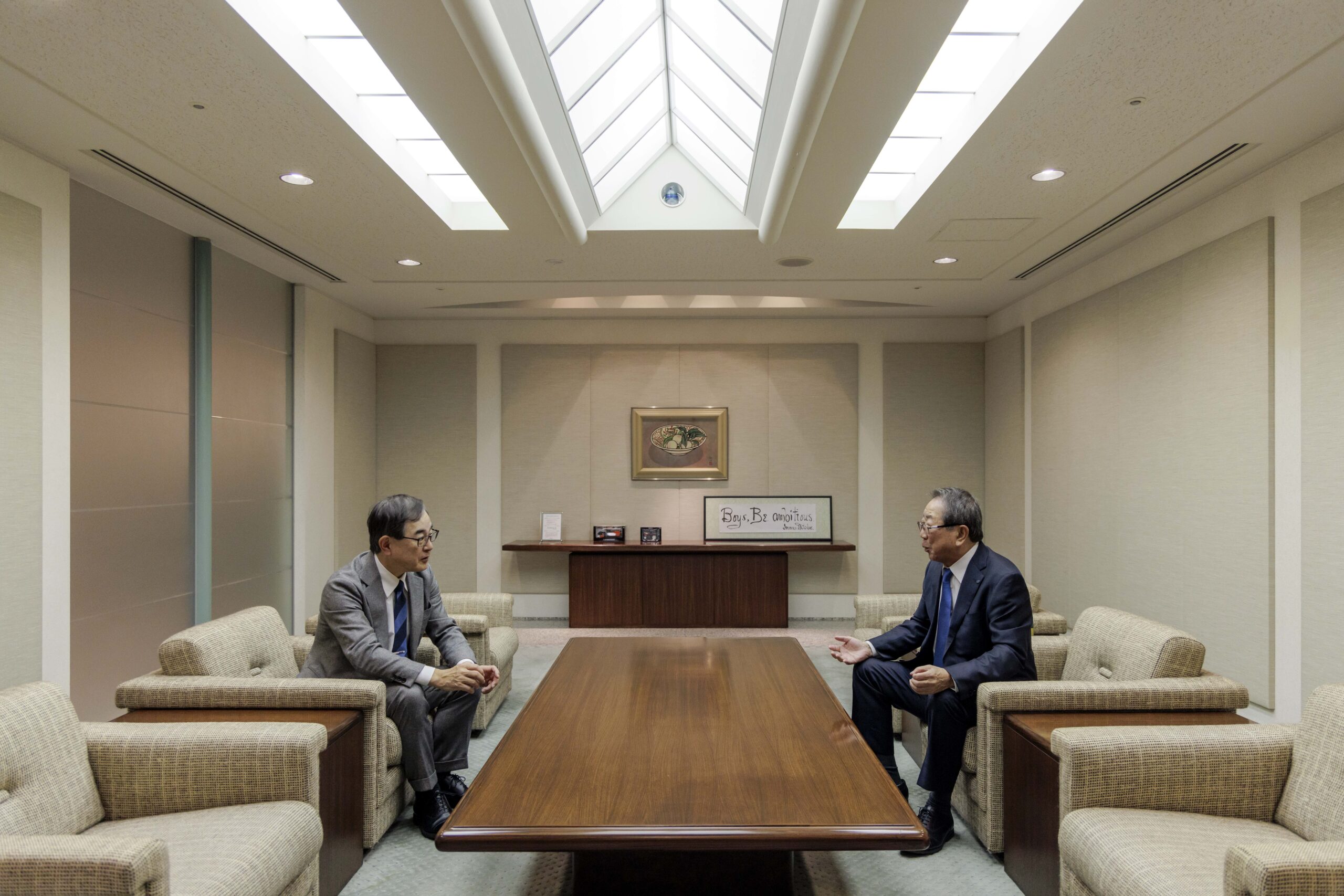
Houkin: I agree. It’s difficult, but the management should not take too large a risk. In golf, we say “Never up, never in.” Those who know the situation well should oversee the business to make sure that it does not go in the wrong direction. Lastly, I am interested to know which areas Kubota intends to concentrate its expertise on in the years to come.
Kimata: Food, water, and the environment. Centering on these areas, Kubota will promote smart autonomous technology, resource circulation, and decarbonation to provide differentiated products and solutions that only Kubota can offer.
Houkin: Actually, those fields are the strengths of Hokkaido University, and we have long been engaged in the fields of food, water, and air as field sciences. Hence, the activities of our alumni at Kubota are inspiring to our students.
Today, I was impressed by the idea of globalization. It’s essential to consider where your company is in the world, and the same is true of universities as well.
Thank you very much for your time today.
This article was published in the Spring 2023 issue of Litterae Populi. The full issue can be found here.
